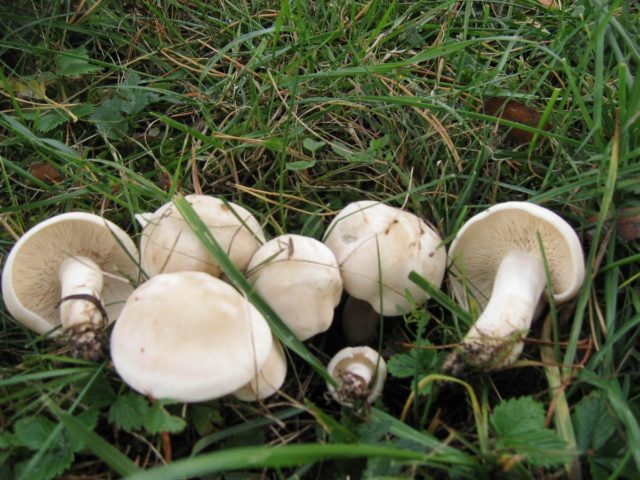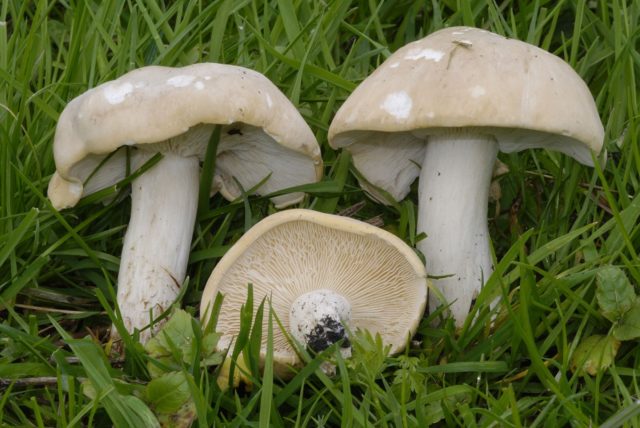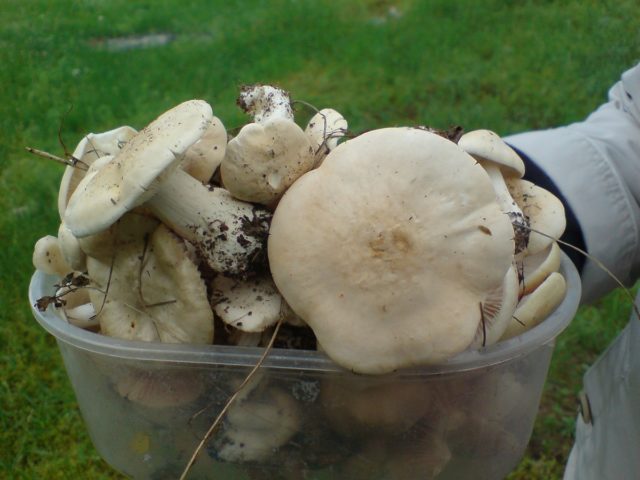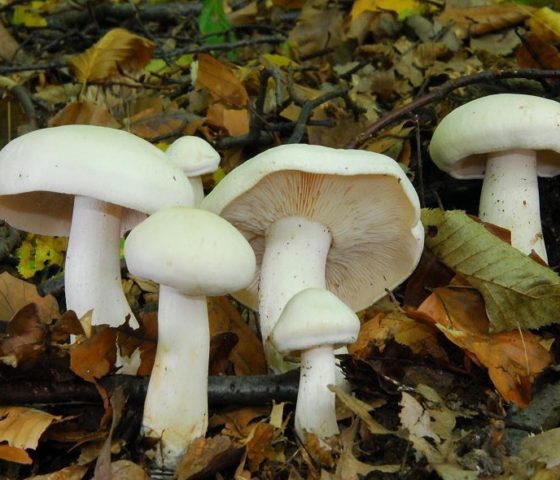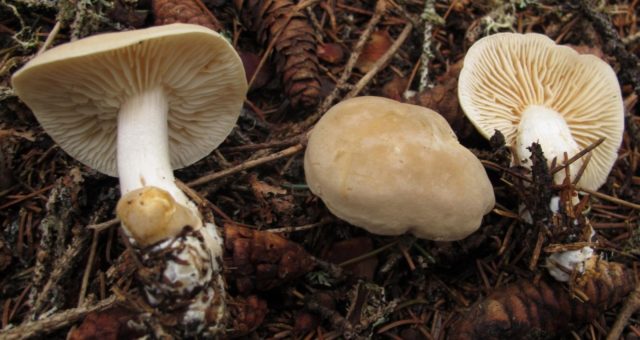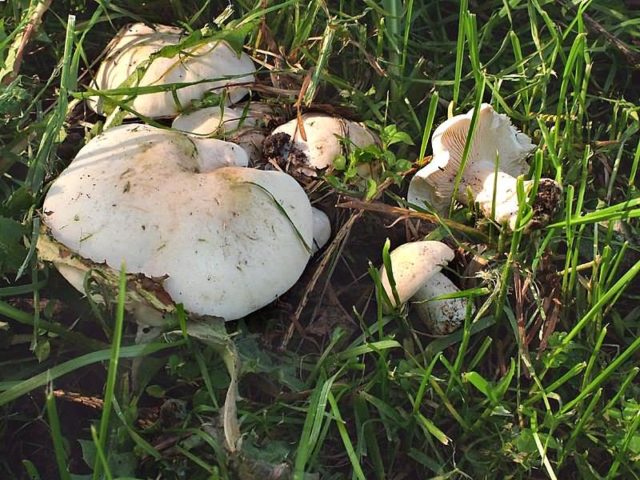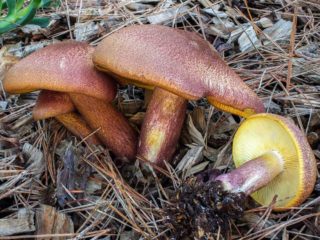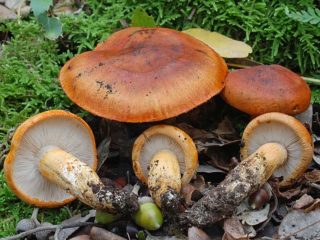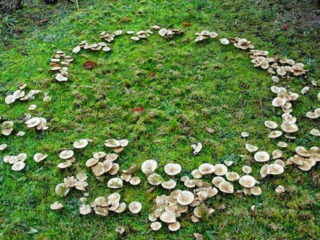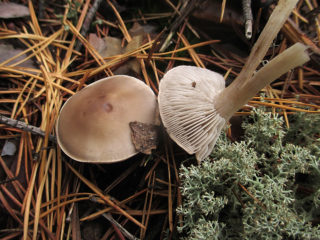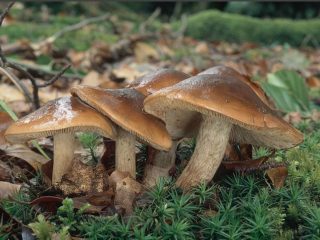Content
Such mushrooms as ryadovki are found everywhere, practically throughout Russia. Among them you can find both edible and poisonous representatives, which every mushroom picker should know about. A clear photo and description of the May ryadovka will allow you not to make a mistake during the "quiet hunt" and diversify the spring diet with the first fragrant and tasty mushrooms, which are also very useful and have a lot of medicinal properties.
Where May Rows grow
The first spring mushroom grows in the western part of the country, in the Urals and the Far East, in Siberia, preferring to settle in mixed forests, parks and groves, along the edges of country roads. You can also find it in the city - on lawns or flower beds, among flowers and herbaceous perennials, as well as in private gardens. The places where the May ryadovka grows are sunny and open - pastures, meadows, thin thickets of bushes. She prefers sandy soil in birch and pine groves, choosing for herself a loose grassy litter. The active time of fruiting occurs in late spring and early summer. In September, rowers can be found in the same places where they grew in spring, but in small quantities. Rowing is also growing in all European countries. It can often be found in places where morels and stitches grow.
What May Rows look like
Ryadovka May (other names - May mushroom, Calocybe May, Calocybe gambosa) is a lamellar mushroom, which is characterized by a white with a cream shade, a fleshy cap and a dense cylindrical or club-shaped leg.
The diameter of the cap is from 5 to 12 cm, its shape is flattened or convex-prostrate, with uneven, as if cracked edges. With age, the cap acquires a yellow-ocher color, but the plates in both old and young specimens have a light, whitish-cream color. At the same time, in overgrown mushrooms, the plates become thinner and more frequent. In individual fruiting bodies, the cap bends during the growth process, which is associated with the biological features of the structure.
The shortened, dense leg does not grow more than 9 cm in height, expanding downward. Its maximum thickness is 3.5 cm. The color of the leg is white with a yellowish tinge; closer to the base it turns into ocher-yellow. The flesh of the May ryadovka is dense and fleshy, white in color; when cut, it exudes a strong, pleasant aroma of flour. The taste is also mealy, fresh. On the cut, the flesh does not change color. In appearance, representatives of this variety are somewhat reminiscent of champignons. However, a detailed description and photo of mushrooms makes it easy to distinguish the May row from other representatives of the mushroom kingdom.
Is it possible to eat the May rows
Rows of May belong to edible mushrooms of the 4th category with gastronomic taste. It is this species that is considered the most delicious among the representatives of the Ryadovok family. In addition, fruiting bodies contain many substances useful for the human body in optimal quantities, which is not typical for other varieties of mushrooms.
The taste of the May ridge
May ryadovka, which in European countries is called the St. George's mushroom, has the taste and aroma of fresh flour with pleasant cucumber notes. It is not eaten raw, but it is perfect for winter preparations and the preparation of various culinary dishes. Best of all, ryadovka shows its taste properties when fried. Pickled and salted fruit bodies also reveal their taste well. However, true gourmets use them in the preparation of soups, sauces, broths. For winter use, they are dried and frozen.
Benefits and harm to the body
Culinary dishes from the May ryadovka are not only tasty, but also extremely useful for the human body, because the main product has a lot of medicinal properties. Scientific research has proven that calocybe is capable of:
- remove toxins and toxins from the body;
- stimulate the recovery of liver cells;
- normalize the tone of the stomach and intestines;
- improve immunity.
In their composition, they contain vitamins A, C, PP, B, various trace elements, and most importantly - enzymes from which antibiotics are obtained in the medical industry to destroy the tubercle bacillus. Due to their chemical composition, the rows have unique properties:
- antibacterial;
- antiviral;
- anti-inflammatory;
- antioxidant.
Mushrooms contain a minimum amount of calories and are distinguished by a balanced composition, which allows them to be widely used for dietary and vegetarian food. In their composition, they are close to such a valuable product as beef liver and successfully replace meat.
In official medicine, it is recommended to eat the May ryadovka for those who suffer:
- nervous disorders;
- diabetes mellitus;
- hypertension;
- oncological diseases;
- disorders of the genitourinary system;
- osteoporosis;
- rheumatism;
- arrhythmia and other cardiovascular diseases.
White May Row helps prevent colds. If for three months the product is regularly included in the weekly menu, then during the epidemic season it is possible to completely avoid infection. One of the most valuable properties of calocybe is the presence of anti-cancer components in the composition. Therefore, in China, this species is used to prepare a medicine against ovarian and cervical cancer, and in Russia, pulp extracts are used to make medicines against diabetes mellitus.
No harm from the use of the May ryadovka was revealed. However, like other mushrooms, it is a rather heavy food that is not recommended to be overused. Dishes with calocybe are completely contraindicated for gastritis with low acidity, pancreatitis and chronic diseases of the gastrointestinal organs in the stage of their exacerbation.
How to distinguish a row in May
The May row, growing in the country or in the garden, is similar in appearance to the white variety, the cap of which is rounded-convex in young specimens, and becomes flat with age. Poisonous ryadovka white has a pungent taste and a pungent, unpleasant odor. It grows from August to the end of October.
The smelly row is inedible, capable of causing hallucinations, therefore it is not eaten. The fruit body has a firm pulp and a convex white cap. Emits a pungent smell of lamp gas. The variety bears fruit in autumn, in September-October. On the territory of Russia, it grows only in the Amur Region, but in Europe it is found everywhere.
As mentioned above, during the spring harvest, the May mushroom cannot be confused with other members of the family, since they all bear fruit in the fall. However, the May ryadovka sometimes appears in September, continuing its growing season. During the autumn mushroom hunt, it is worth paying maximum attention. The main differences between inedible and poisonous rows are an unpleasant, pungent smell and acrid taste. Their caps acquire a flat shape over time, which is not typical of the May calocybe.
Collection rules
May ryadovki are collected in spring and early summer, in dry weather. Young and sufficiently mature specimens are chosen, cutting off with a sharp knife at the base. Unlike autumn representatives, May mushrooms do not accumulate toxins in themselves, so even adult fruiting bodies can be safely used for food. The harvest time coincides with the active fruiting of morels and stitches, which allows mushroom pickers to return home from the forest with a rich harvest. Since the variety grows in the spring-summer period, when most of the mushrooms have not yet entered fruiting, it is impossible to confuse it with similar species. It is not difficult to find the May row, mushrooms grow in large groups, dense rows and "witch" circles, as shown in the photo, and if the search is successful, the basket will quickly fill with dense, fragrant fruiting bodies.
How much to cook the May row
The collected mushrooms are first sorted out, cleaned of debris and washed thoroughly. Soak for 2 hours to remove residual dirt. Before proceeding with the preparation of culinary dishes from the May ryadovka, the raw materials must be properly prepared. In order to fully reveal the taste of the product, the fruit bodies are subjected to preliminary complex heat treatment.
Algorithm of actions:
- Boil the mushrooms for 10 minutes. in a large amount of water with the addition of table vinegar.
- The liquid is changed by pouring fresh water into the calocybe, also adding vinegar.
- Cook for 20 minutes, then put a head of peeled onions and boil for another 10 minutes.
- They are thrown into a colander, the broth is poured out, the rows are prepared according to the recipe used.
How to cook May ryadovka
Recipes for dishes from the May ryadovka are varied. Mushrooms are great for pickling, stewing, frying, salting. The fruit bodies, previously prepared in the above way, are laid out in a preheated pan with butter, salted, pepper, and onion rings are added. According to many gourmets, this is the most savory kalotsibe dish. This species also reveals its original taste and forest, unusually pleasant aroma in soups and sauces with the addition of sour cream and butter.
The following recipe for marinating a May row will allow you to prepare it for winter storage.
The algorithm of actions is as follows:
- Pre-boiled fruiting bodies are placed in an enamel pan, filled with water.
- For 1 kg of mushrooms, take 30 g of salt and sugar, 2 bay leaves, several cloves and black peppercorns. All are sent to the mushroom mass.
- After boiling, cook for 5 minutes. and add 40 ml of vinegar.
- The mixture is distributed over sterilized jars, peeled garlic cloves are added and on top - 1 - 2 tbsp. l. vegetable oil.
- Jars are sealed, stored in a cool, dark place.
Salted rows are prepared in a slightly different way:
- Prepared fruit bodies are placed in an enamel pan in layers, each sprinkled with salt, peppercorns, horseradish leaves. Peeled garlic cloves are added.
- Cover with clean gauze and oppression.
- Put away in a cool dark place for 40 days.
- Salted rows are transferred to clean jars and covered with plastic lids.
- They are sent to the refrigerator for storage.
It is also possible to prepare calocybe for future use by the drying method, for which the fruit bodies are strung on a thread and hung in a well-ventilated, sunny and open place. The drying process takes 40 days.
In addition, May ryadovki, pre-boiled in salted water, can be placed in the freezer and subsequently prepared any mushroom dishes from them.
Conclusion
The photo and description of the May ryadovka will not allow confusing it with other representatives of the mushroom family and will make it possible to harvest a large harvest during a "quiet" hunt. The first spring mushrooms will not only significantly diversify the table, but will also delight you with their excellent taste, will bring invaluable benefits to the body, and will make up for the lack of vitamins and minerals.
